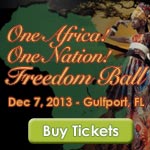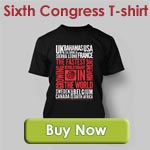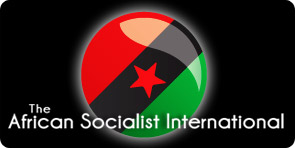Political Report to the Fifth Congress of the African People’s Socialist Party
Join the online studies / discussions: May 2 | May 9 | May 16
Table of Contents
- Imperialists cannot stem tide of national liberation
- The Party is the anti-colonial force in this time
- African People’s Socialist Party is heir to Marcus Garvey
- Pan-Africanism was the petty bourgeoisie; Garvey led the African working class
- African Internationalism advances Garvey Movement, defines imperialism in crisis
- African Internationalism shows the way forward
- African Internationalism led on the issue of reparations
- African workers must lead the struggle against parasitic capitalism
- ASI is the basis for a genuine Communist International
- White nation-state built on pedestal of slavery, colonialism
- White communists must be committed to overthrowing white power
- The African Socialist International is growing in Africa
- ASI resolution adopted at Party’s First Congress
- InPDUM leads mass resistance
- Revolutionary National Democratic Program: the political basis for black power
- Black is Back Coalition helps to advance RNDP
- African People’s Solidarity Committee another vehicle against U.S. imperialism
- White people must side with African workers not parasitic capitalism
- AAPDEP a tool against parasitic capitalist development
- AISO wins students to African Revolution
- African Redemption Church: the Party’s response to religious idealism
- Influencing and organizing African labor
- Party must address issue of African mass incarceration
- Formalizing the leadership of African women
- Solve the problem of recruitment
- Accountability and democratic centralism
- Party’s Department of Agit Prop has made great leaps
- Cadre development and leadership is key
- Office of Economic Development builds culture of self-reliance
African People's Socialist Party is heir to Marcus Garvey
In so many ways, the African People’s Socialist Party carries on the legacy of the movement of Marcus Garvey during the 1920s and his organization of 11 million African members, the Universal Negro Improvement Association (UNIA).
For centuries, Africa and her dispersed children have suffered concentrated attacks by imperialism. These attacks resulted in the forcible dispersion throughout the world of millions of our people, while Africa, our national homeland, was captured and divided into territories to facilitate the theft of our resources.
False borders were put in place to thwart our resistance. This imperialist assault has made Africa the essential factor in the development of capitalism as a world economy that enriches the minority white populations of Europe, North America and elsewhere at the expense of Africa and the world’s peoples.
This process of enslaving Africa and African people, along with the rape and plunder of the rest of the world, consolidated the European nation. This gave Europe a reactionary sense of sameness that was tied to the material basis of its stolen wealth and the social system born of slavery and colonialism. In other words, the consolidation of the world capitalist economy and the European nation came as a consequence of assaulting the unity of Africa and African people.
In 1914, nearly 500 years after the initial European assault on Africa and 30 years after the Berlin Conference that divided Africa to facilitate European exploitation, the Universal Negro Improvement Association and African Communities League was established under the leadership of Garvey.
The UNIA launched the international African anti-colonial resistance movement to unite Africans in a concerted effort to liberate and reunify our Motherland and the forcibly dispersed and enslaved African nation.
The UNIA consolidated Africans in Africa and throughout the world into a united organization with a single center and leadership. Under the slogan, “Africa for Africans, at home and abroad,” the UNIA brought together 11 million members and supporters in the largest anti-imperialist organization in the world.
This was at the turn of the 20th Century when resistance to imperialist colonialism was growing throughout the world even as the imperialists were engaged in the First Imperialist World War to re-divide the world — mainly the colonial and subject peoples — among themselves.
This was an era of great upheaval. The European war to re-divide the world that is commonly known as World War I was upsetting the balance of power in Europe. This First Imperialist World War challenged the notions of European identity conferred to different Europeans at the 1814-1815 Congress of Vienna that was used to redraw European borders after the Napoleonic Wars.
At the Berlin Conference of 1884-1885, Europe established the current borders of Africa in order to peacefully parcel out to different European powers African territory to feed the European capitalist greed for raw materials, enslaved labor and markets in an attempt to avoid intra-European war.
It was during this period of tremendous social and political flux that the UNIA rose to prominence. Marcus Garvey defied the verdict of imperialism that had defined African people according to the identities and needs of our colonizers and claimed African identity for us all. This was a political line that truly recognized the nature of our oppression and exploitation as a people and the line of march for our liberation.














